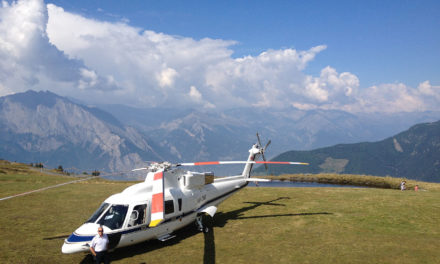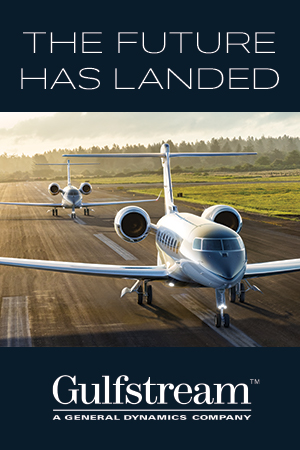By Pete Bunce, President and CEO, General Aviation Manufacturers Association (GAMA) © GAMA
The global general and business aviation industry continues to show steady growth and stability despite facing some headwinds. While the industry has shown incredible resolve, we continue to face reckless attacks, particularly in Europe, which fail to recognize the fact that our industry plays a vital role in the overall transportation system and growing economic opportunity throughout the world.
Our product development across the spectrum of fixed wing, rotorcraft and advanced air mobility vehicles is spurred by the recognition that the general and business aviation industry is the safety and sustainability technology incubator for global civil aviation. These safety, performance and sustainability efforts are built upon technological advancements including lighter weight materials, new structural and wing designs, fly-by-wire control replacing heavy hydraulic systems, additive manufacturing reducing the number of parts, lighter weight and more reliable avionics, and engines and airframes that can fly on a 100 percent sustainable aviation fuel (SAF) blend. This impressive list of advancements does not even begin to touch on the revolution of electric, hybrid and hydrogen propulsion aircraft that GAMA member companies are developing. These technologies will pave the way for broader implementation in aerospace.
It is important to note that the benefits of these advancements are dependent on having an effective, reliable and conducive regulatory and business environment to facilitate industry’s ability to introduce innovative technologies and more sustainable products into the market. Unfortunately, in Europe, we are seeing short-sighted policies and attacks that are beginning to create instability within the industry. The European Commission’s recently approved «EU Taxonomy on Sustainable Finance» failed to include business aviation as a financial investment that can be categorized as «sustainable.» Despite comprehensive, coordinated efforts for inclusion during the consultation period, the political force behind the symbolic exclusion of business aviation was strong. This exclusion can greatly impact the availability and cost of financing aircraft development, sales to operators, and related services such as maintenance and are counterproductive to industry innovation.
To mitigate the impact, we are engaging with financial institutions so that they understand our work and sustainability advances and commitments and engage with us to find solutions in areas like the availability and cost of financing aircraft development, supply chain development and aircraft sales/refinancing.
While efforts came up short on taxonomy, the industry did see success with the European Parliament Plenary’s vote to completely reject a report, which included very concerning proposals for a «prohibitive tax on private jets.» While industry-led advocacy efforts to thwart the report proved successful, a 20-vote margin of victory is too close for comfort and shows that we must continue with our advocacy work emphasizing the importance of our industry to policymakers.
As we further advocate on behalf of the industry, it is vitally important that we emphasize our manufacturers, service providers and operators’ steadfast commitment to improve efficiency and mitigate our industry’s impact on the environment. A great example of this is our strengthened commitment to environmental sustainability with an aggressive goal of net-zero carbon emissions by 2050 and continued technology improvements.
With SAF playing a key role in decarbonizing business aviation and achieving our net-zero goal, it is critical that we work with authorities to incentivize and strengthen efforts to develop, deploy and increase usage of SAF. The RefuelEU Aviation Regulation sets targets for the ramp up of SAF deliveries to larger EU airports but excludes many of the general and business aviation airports. To support our commitment to use SAF we are working with the commission to recognize a book-and-claim system as well as additional measures to protect supplies of SAF for smaller airports. It is imperative that we work collectively to counter the attacks on the industry, which aim to restrict general and business aviation in Europe. Our industry has proven to be resilient and we stand ready to meet the needs and challenges that lie ahead, which will create greater opportunities for future growth and a safer and more sustainable industry.









